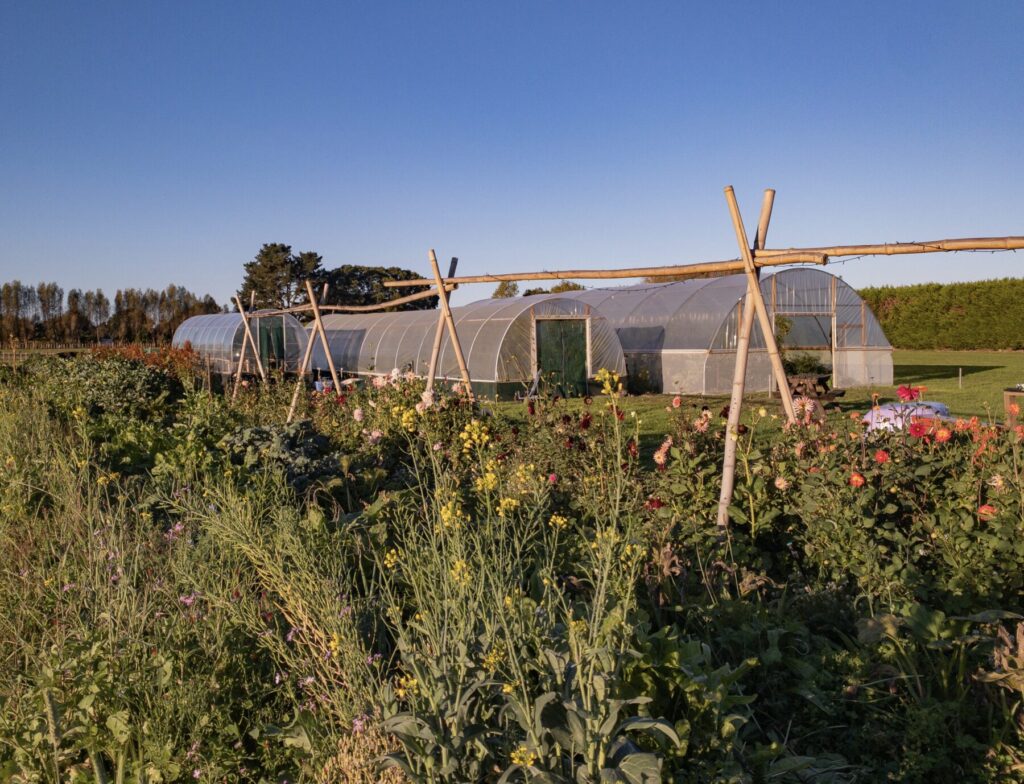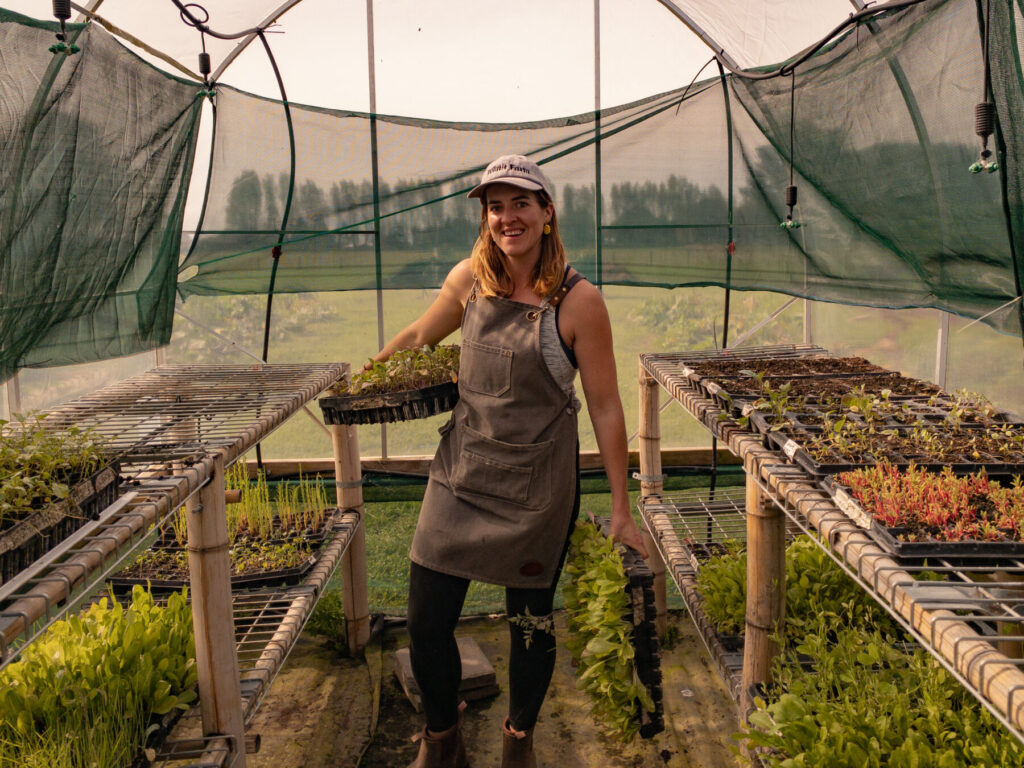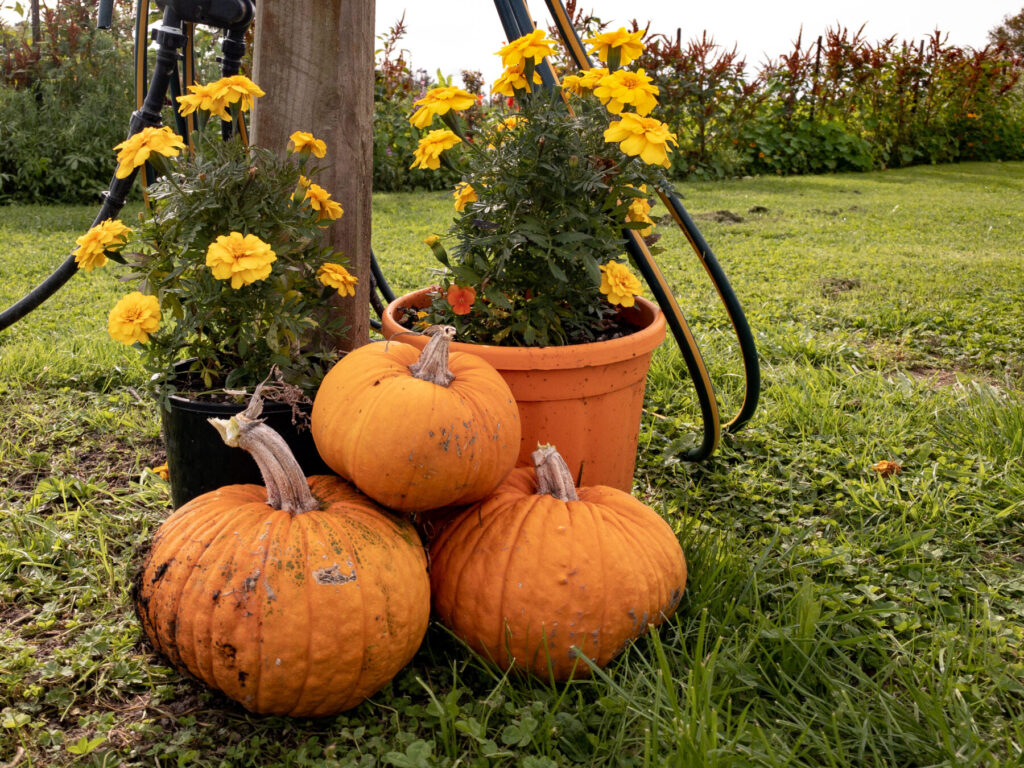The Tale of Tomtit Farm: One woman’s fight for food security in Matangi
The market garden bringing Community Supported Agriculture to the Waikato.

Papatūānuku takes longer than usual to shed her blanket of mist this morning. Through the fog, spots of colour rise in search of the sun – dark green kale, orange pumpkins, and dahlias of all shades. There are 16 garden beds here, in the centre of a large field next to three tunnel houses. At the end of one of the beds, crouched amongst the flowers, is a gardener.
Brit Morison has no children of her own, but she knows how to feed a family. With more than 20 on her delivery list tomorrow, she has a busy day of harvesting in store.
Along with her husband James, Brit is a founder and director of Tomtit Farms. Based in Matangi, her days are long and packed with physical labour. Today she is harvesting salad greens, herbs, radishes, and tomatoes. Like everything else grown on her farm, the produce is organic and spray-free. After she harvests the vegetables, she will clean them and prep them for delivery tomorrow – like most days, she’s going to be here a while.
Despite the long days, the decision to take up urban farming was relatively easy for Brit. There is a wonder that comes from being a part of our connection to food, and after experiencing it firsthand, it’s hard to ignore. With food prices, especially healthy food, continuing to rise, Brit saw her chance to make a difference.
“We want to inspire and guide you, we want to invite you to the garden, and share recipes. We want to connect with you as the consumer, so you really know where your food is coming from.”

A trained nutritionist, Brit turned her attention to gardening in 2018 when she moved to Hamilton. Four years on, her produce is sold at local cafes and stores and delivered to more than 30 families each week.
“We run on a community supported agriculture model, which means low food mileage, and fresh produce, and we’re protected as growers.”
Community Supported Agriculture is a farming model where community members pay a subscription to local growers. For farmers like Brit, it provides protection for her as well as healthy produce for her customers.

“I’d love it if everyone could grow their own kai in their backyards, but we’re not there yet. If I can even shorten the food chain a little bit, I’ve done well.”
Brit aims to facilitate the change from consumers to producers in our own backyards and hosts garden tours and workshops to empower people to take charge of their own food sovereignty.
Currently, you can find Tomtit Farm produce at their Matangi-based garden, Front Paddock Café, Whole Heart, Direct from the Market, and through their website.




